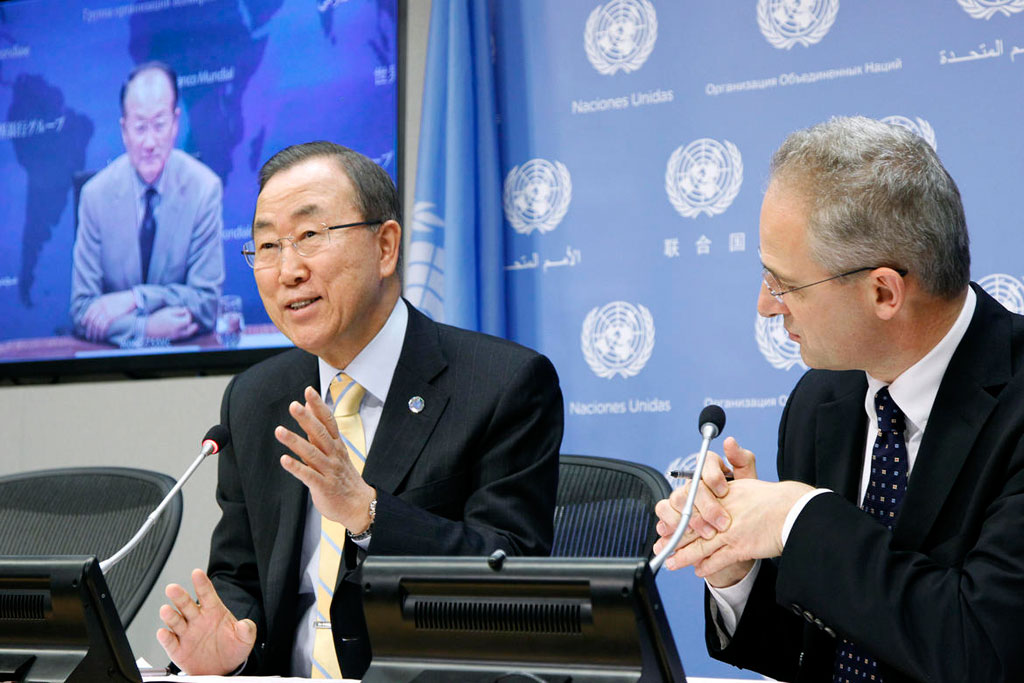Good morning everyone, and President Jim Yong Kim. It is a great pleasure to see you.
I am pleased to be joined this morning by Dr. Jim Yong Kim, President of the World Bank Group. Earlier this year, President Kim and I travelled together to the African Great Lakes region in support of a new peace framework aimed at tackling the roots of long-running conflict and under-development.
It was the first joint visit by a United Nations Secretary-General and a President of the World Bank Group. Today, we are here to announce that we will team up once again and travel next week to the Sahel region of Africa. We are honoured that we will be joined by Dr. [Nkosazana] Dlamini-Zuma, Chairperson of the African Union Commission.
We are also pleased that Mr. Donald Kaberuka, President of the African Development Bank, and Mr. Andris Piebalgs, Commissioner for Development of the European Union, will also take part – along with my Special Envoy [for the Sahel] Romano Prodi.
The joint visit will start from Mali and continue to Niger, Burkina Faso and Chad. The Sahel is one of the most impoverished and fragile places on the planet. At this time last year, Mali was in crisis. Since then, our collective efforts have helped not only improve the political and security situation in Mali but also address some of the broader challenges in the Sahel.
The time is ripe to build on these gains.
Let me highlight three reasons why this visit is so important.
First, the crisis in Mali has underscored the need to do more than fight fires in the region – we need to clear away the problems that could ignite conflict and instability.
Second, we must take a regional approach. The challenges in the region respect no borders – neither should our solutions.
More than eleven million people are food insecure. Five million children under five are at risk of acute malnutrition. The region is awash in weapons, and highly vulnerable to terrorist and criminal networks. The Sahel has suffered its third major drought in less than a decade, and the effects of global warming are being felt as never before. These challenges cannot be overcome by any government or organization alone.
The issues are connected and we need an approach that connects our efforts.
Our United Nations Integrated Strategy for the Sahel – endorsed by the Security Council -- does just that. It puts a priority on good governance, security and resilience. It stresses human rights and opportunity for women and young people.
Above all, it is anchored in supporting the priorities of the governments and people of the region.
That is my third point. The leaders of the Sahel are coming together to tackle their challenges in a concerted way.
They need our support.
We are going together to listen and act.
We are convinced that the cycle of crises in the Sahel can be broken. The region can move from fragility to sustainability. President Kim and I have learnt from long experience that peace is not sustainable without development – and development is not sustainable without peace. Our message on this critical visit and around the world is that peace and development must go hand-in-hand.
I thank you.

